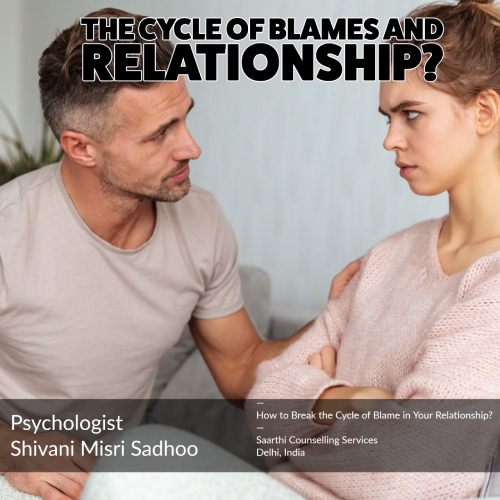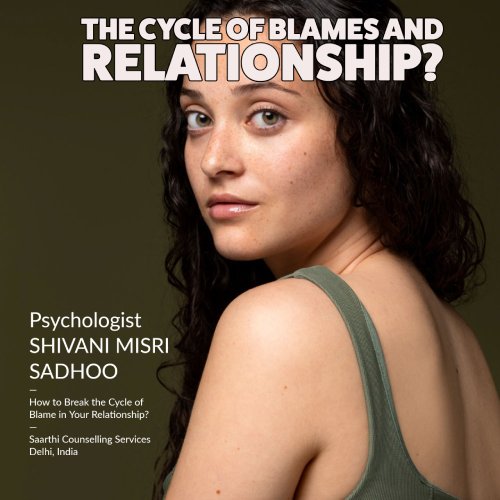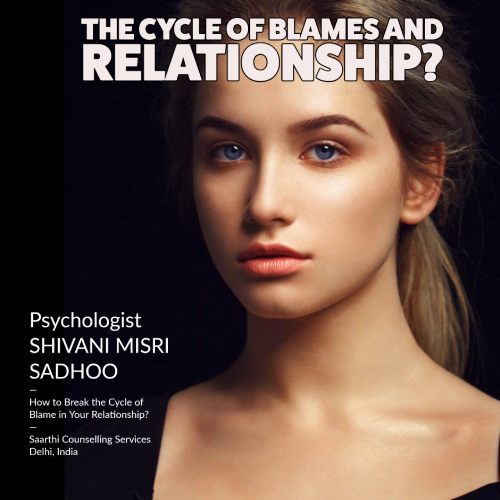How to Break the Cycle of Blame in Your Relationship?
Shares Couples Counselor Shivani Sadhoo
Finger-pointing can quickly turn a loving connection into a battleground of accusations and hurt feelings. Blaming is a natural human response to avoid responsibility, but it’s not constructive. It’s tough when the blame game becomes a regular part of a relationship.
Let’s find out why partners blame each other in a relationship and what are the ways to break this vicious cycle from India’s top relationship expert and marriage counselor Shivani Misri Sadhoo.
Why does the blame game begin?
Shivani Sadhoo says, there are certain factors that initiate the blame game. Some of them are:
Childhood experiences:
These shape our coping and communication strategies. If individuals face blame or criticism, they may unconsciously blame others in relationships.
Protect Self-esteem:
Blaming others helps preserve a positive self-image and shields self-esteem, as admitting fault might be perceived as a weakness.
Lack of Empathy:
It hinders understanding others’ perspectives, leading to a tendency to blame instead of considering their viewpoint.

Ways to Deal with the Blame Game?
Shivani says, every problem has a solution, you simply need to find it. Some of the ways to deal with the blame games are:
1. Use “I” Statements:
Instead of pointing fingers and using accusatory language, express your feelings and concerns using “I” statements. For example, say, “I feel hurt when you blame me for everything” rather than “You always make me feel bad for …”
2. Accept your fault:
Acknowledge your own mistakes and be willing to apologize when necessary. This sets a positive example and encourages your partner to do the same.
3. Forgive and Forget:
Learning to forgive and forget involves letting go of past grievances and not holding on to grudges. It means releasing the need to continuously blame each other for past mistakes and choosing to move forward with a fresh outlook, fostering understanding and healing in the relationship.
4. Identify the root cause:
Identify the root problems causing conflicts. Focus on understanding each other’s perspectives without immediately assigning blame. By pinpointing the real issues, you can work together to find constructive solutions and improve your relationship.
5. Be Patient:
Practice patience by actively listening without interrupting or becoming defensive. Empathize with your partner’s feelings, communicate calmly, and avoid retaliating. This fosters understanding, promotes healthier discussions, and strengthens the bond between you both.
6. Nobody is Perfect:
Of course, no relationship is without its hiccups. We’re only human, after all. So, let’s set realistic expectations and understand that perfection is not the goal here. It’s about progress. Celebrate the small wins along the way and acknowledge that change takes time.
7. Talk to each other:
Healthy communication is the foundation of any successful relationship. Both partners must be willing to express their thoughts and emotions openly without fear of judgment or criticism. Encourage each other to share feelings and listen actively without interrupting or becoming defensive. This way, both partners can understand each other’s perspectives and work together to find constructive solutions.
8. Listen to each other:
Actively listen to each other’s perspectives without interruption or defensiveness. Mutual respect and validation of each other’s feelings are essential. Together, find solutions to address the issue constructively, focusing on changing behavior rather than assigning blame.
9. Seek Professional Advice:
Overcoming the blame cycle can be tough, especially if it’s ingrained. Seeking professional help from a therapist or counselor can be highly beneficial. A neutral third party can identify toxic patterns, offer insights, and guide partners toward healthier communication and conflict resolution.
10. Be Compassionate:
Show understanding and empathy toward your partner’s feelings and perspectives. This approach encourages open communication, fosters connection, and paves the way for resolving conflicts constructively.
It is never too late to break free from the blame cycle and embrace a healthier, happier future together. Relationships are a journey of growth, and learning from challenges and mistakes can lead to stronger connections and personal development.
- Does Living with In-Laws Affect Your Marriage? 5 Ways to Deal - July 23, 2024
- Is Your Job Destroying Your Marriage? 7 Signs to Look for - July 15, 2024
- Do you Know How to Handle a Manipulator Effectively? - July 11, 2024

